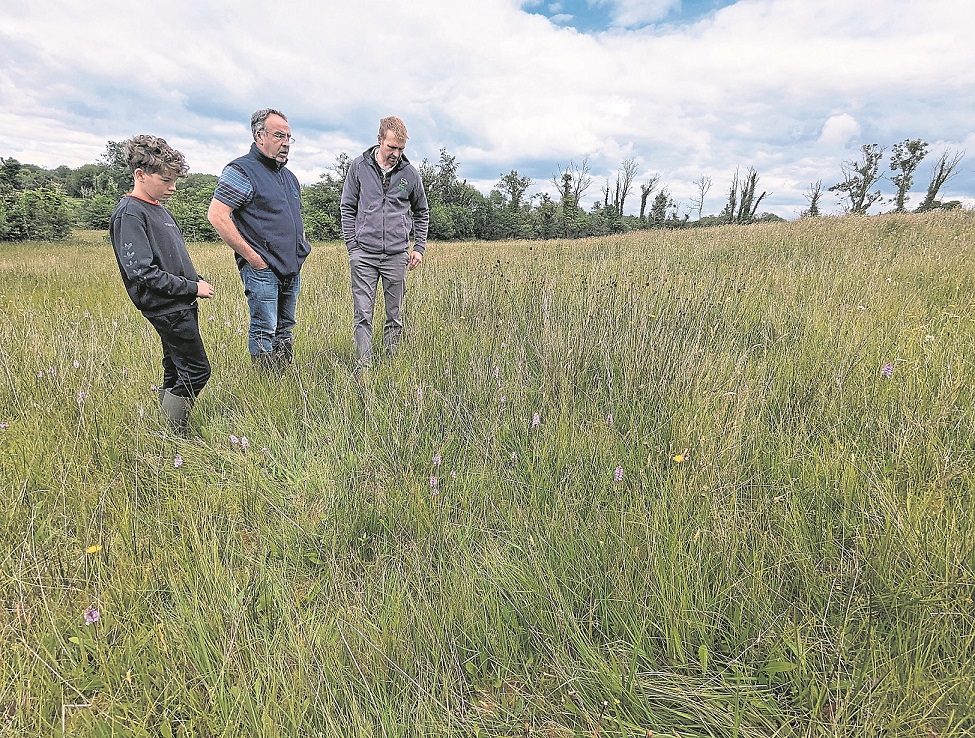DESPITE a perception in wider society that the agri-industry is harmful to the environment, here in Fermanagh our farmers are leading the way in showing how to work the land while also protecting our precious local ecosystem.
Over recent years Ulster Wildlife has been working with farmers here in the county as part of its Environmental Farming Scheme (EFS). To date, a total of 858 hectares of Fermanagh’s species-rich grasslands have been surveyed and mapped as part of the scheme.
Brian Keown, who farms sheep and sucklers on 75 hectares near Garrison, is one of the many local farmers eligible for the EFS scheme. He was deemed eligible after his species-rich fields were assessed by Ulster Wildlife’s local farm facilitators.
Brian will now work with the conservation charity to develop a farm plan to manage these rare grassland habitats. This will enable him to enter a five-year agreement that offers financial incentives to manage and protect this high-nature-value land.
“I recently took on this land with the goal of doing more for nature,” he said.
“Last year, I contacted Ulster Wildlife for advice on what options were available to help wildlife on my land and to check EFS eligibility. Unfortunately, my fields weren’t identified on the scheme map layers as habitat, so I wasn’t eligible to apply.
“However, the Ulster Wildlife team recognised the high-nature value of the fields from aerial photos, came out to survey them, and submitted evidence for their inclusion in the scheme for this year. I’m delighted that the land is getting the recognition it deserves, and my positive management will be rewarded.”
Brian added, “Farming in this type of landscape is more suited to extensive farming, and it’s important we demonstrate the benefits to society beyond food production.”
Flower-rich grasslands are not only vital habitats for hundreds of wildflowers, fungi, and pollinating insects, but they also support a wide range of birds and mammals.
In Fermanagh, they are home to many notable species including orchids, devil’s bit scabious, the marsh fritillary and dingy skipper butterflies, and the narrow-bordered bee hawkmoth.
If you are a local farmer interested in joining the EFS, visit www.daera-ni.gov.uk and search for the ‘Environmental Farming Scheme.’ You can also contact Giles Knight on 07703 673220 or at giles.knight@ulsterwildlife.org
The EFS offers participating farmers a five-year agreement to deliver a range of environmental measures. Over 500 farms across the North are already signed up, with the scheme proving particularly effective here in Fermanagh with its unique flower-rich wet grasslands.
Funded by DAERA, the EFS is the current form of agri-environment support for farmers in Northern Ireland. DAERA pays farmers additional income for managing land, creating habitats, or delivering outcomes for biodiversity following a set of management prescriptions.
Farmers who sign up can avail of group and individual mentoring on various topics related to farming and wildlife.

FOR ONE OFF USE ONLY
Fermanagh farmers lead the way on wildlife protection
Posted: 2:13 pm August 22, 2024
Posted: 2:13 pm August 22, 2024








